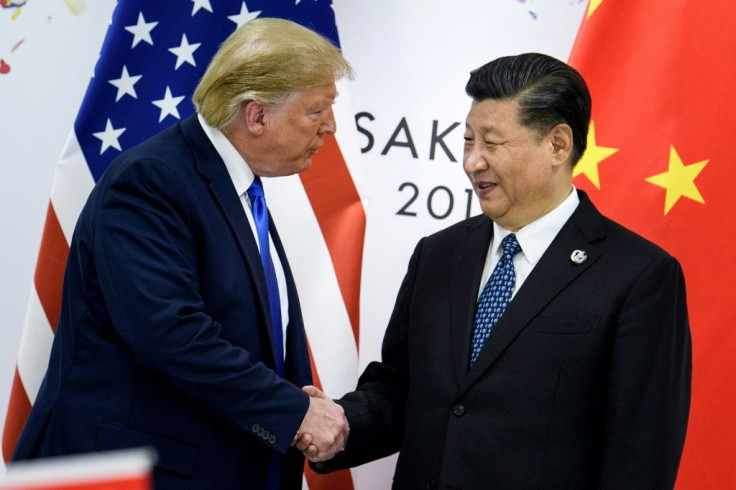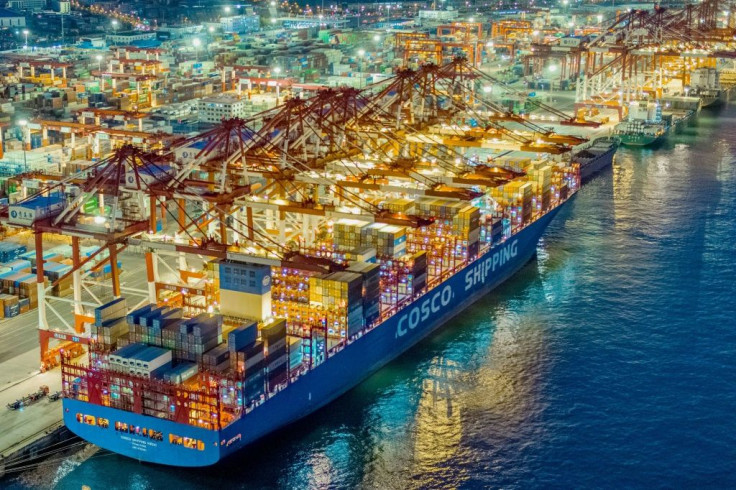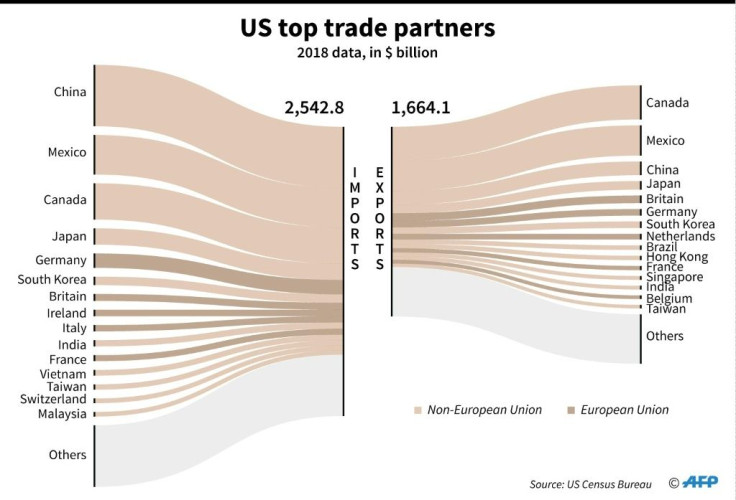US Axes Tariffs On Chinese Goods In Trade War Thaw

The United States and China announced a major thaw in their trade war Friday, including immediate cuts to punishing import tariffs, but markets were not impressed.
"We have agreed to a very large Phase One Deal with China," President Donald Trump tweeted after officials in Beijing made a similar announcement.
A signing of the deal at ministerial level is expected for "the first week of January," a senior Trump administration official told reporters.
The news is a boon for Trump who faces a congressional vote on impeachment for abuse of office next week. With his 2020 reelection campaign gathering pace, he needs to show voters that his habit of starting bruising trade wars is bearing fruit.
So after multiple false dawns in the tussle between the world's top two economies, which Trump launched in March 2018, investors were relieved to see him cancel a new round of tariffs due to kick in on Sunday.
Those levies, which would have hit consumer electronics like cell phones and computers, "will not be charged because of the fact that we made the deal," Trump tweeted.
In a major concession, Washington will also slash in half the 15 percent tariffs imposed on $120 billion in Chinese goods, like clothing, that were imposed September 1 and had a bigger impact on American shoppers than previous rounds.
But Trump said existing tariffs of 25 percent on $250 billion of Chinese imports would stay in place pending further negotiations on a second phase deal.
In return, US officials say, China is committing to increasing purchases in four sectors: agriculture, manufacturing, energy, and services.

Purchases will hit "at least $200 billion dollars over the next two years," the administration official explained, on condition of anonymity.
In addition, the official said, China is agreeing to start structural reforms, including on the key problem of intellectual property rights.
American farmers who bore the brunt of the trade war and retaliation by Beijing which slashed exports, will especially benefit from the increased purchases, US officials say.

"I think in agriculture they will hit $50 billion," and take effect "pretty soon," Trump told reporters at the White House.
Meanwhile, China's Vice Finance Minister Liao Min told reporters that Beijing would also call off retaliatory tariffs planned to respond to Sunday's now scrapped US measures.
Vice Commerce Minister Wang Shouwen said the initial agreement includes strengthening protection of intellectual property rights, expanding market access and safeguarding rights of foreign companies -- issues at the heart of US complaints.
"It is hoped that both sides will abide by the agreement, work hard to implement the relevant contents of the first phase of the agreement."
The US official told reporters that Washington is satisfied it can enforce the deal, "potentially in the form of tariffs."
Though investors were relieved to see Sunday's threatened tariffs removed, US stock markets didn't appear to like the deal much.
Trade economist Mary Lovely said the deal could only be viewed as a "partial win" which "didn't move the needle very much."
The gains do not compensate for the damage to US farmers and businesses, she told reporters.
"President Trump is desperately trying to get back to where the economy was 18 months ago," before taking this "unilateral, brute force approach," Lovely said.
In a sign that tensions remain high, Foreign Minister Wang Yi said earlier Washington was "suppressing" China in a number of fields, including the economy, trade and technology and had "seriously damaged the foundation of hard-earned trust between China and the US."
Washington has also angered Beijing by backing Hong Kong's pro-democracy movement and criticizing China's mass detention of mostly Muslim minorities in the northwest region of Xinjiang.
© Copyright AFP 2024. All rights reserved.





















